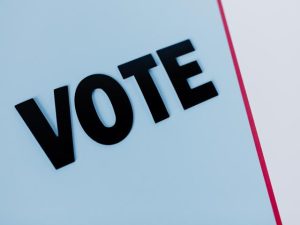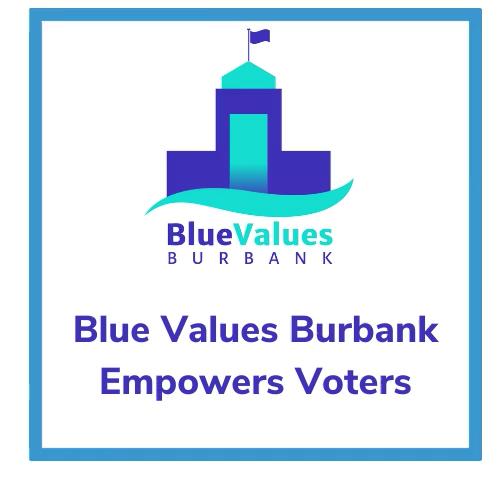CITY COUNCIL CANDIDATES
Nikki Perez

Why are you running for City Council?
What will you add to City Council that is needed?
If elected, I would be the only member of Council with a professional background in the California Legislature and in providing services to unhoused populations. I would be able to contribute institutional knowledge of the legislature and encourage the city to be more proactive instead of reactive on pending legislation and funding. Additionally, I would be able to contribute my first-hand knowledge of the housing and homelessness crisis, and the different ways to successfully approach the diverse challenges our unhoused populations face. I would also be able to bring a unique perspective not currently represented on Council, as a renter and Latina along with breaking barriers as the first indigenous woman and LGBTQ+ Council Member.
Gun Stores
Council Influencers
What Burbank organizations (Corporations, nonprofits, etc.) do you see as playing an influential role in Council decision-making? What specifically do you feel these organizations contribute to Council decisions that is productive? not productive? Please give some examples.
If elected, what Burbank community organizations will you see as influencers in regard to your decisions as a council member and why?
One of the things I love about Burbank is our level of community engagement and participation. We have a very wide range of organizations that all carry a lot of weight with sectors of our community. For instance: we have a very active Chamber of Commerce that has a pretty large voice in our city; we have several unions that each have large advocacy power in our community; our studios are our major employers, and thus have a seat at the table; our local democratic club, the Burbank Democratic Club, has proven to be effective at communication to democratic voters in Burbank; we have several nonprofits that are regional leaders including the YMCA and Family Promise of the Verdugo; there are other advocacy groups including your organization, Together We Can Burbank, and the Zonta Club of Burbank that have effectively rallied our residents and also have a voice. All of these entities organize around a particular purpose, in the interests of a particular segment of our residents or stakeholders. Thus they can each be productive, in terms of uplifting the voices of various interests in Burbank, but they can also be unproductive when their intentions are too narrow in their benefit to our community as a whole. If elected, all community organizations would be influencers regarding my decisions as a Councilmember. After all, a Councilmember is on Council to listen to, understand, and represent all residents and stakeholders in our community. I think it is very important, no matter who your alliances are with or not, to be sure to always make decisions that benefit the greater community or that are aligned with the values you ran and were elected on. Even organizations I disagree with would influence my decisions, as I would hear them out and try to see their perspective before making a final call.
Pandemic Response and Planning
Homelessness
If elected, what will you change in regard to the actions the city has taken to obtain additional funding for homelessness services such as the MHET Team, housing and other necessities?
Do you think the homeless in Burbank are getting the services they need? If so, what are those services? If not, what more is needed?Describe what actions your would take to help the most vulnerable homeless, such as teenagers, LBGTQIA, substance abusers, domestic violence survivors and those needing mental health services
As a Social Worker, I work with families experiencing homelessness every day. Through my work as the Program Manager for “Kids First”, I have developed strategies that help families find and maintain permanent housing. With about 290 reported homeless individuals in our city, some may feel this is a low priority for Burbank, however, this number is growing and many of our residents are only one paycheck away from losing the ability to keep food on the table and a roof over their head. As the only candidate who works directly with families experiencing homelessness and who has worked with state legislators on housing and homelessness policy, I want to bring that expertise to the table. I know and have seen how policy and funding do not always translate to effective implementation. If elected, I will ensure we create our first real comprehensive homelessness plan that makes efficient use of taxpayer dollars while providing much needed services. The current plan was rightfully rejected by the council for its lack of detail, data driven solutions, and information. We need a plan that is based on demographics, surveys, and needs explicitly stated by our unhoused community or else we may be investing in resources that do not benefit the populations we are trying to serve. This concrete plan iis also important because not only does it guide our work but it is the way our nonprofits on the front line can apply for state, federal, and private grants. Finally, homelessness does not have a one size fits all solution and we need to address all of the mental health, financial wellness, academic inequity, and demographic issues that lead individuals and families to homelessness. Through the establishment of a homelessness resource center for those at risk of or experiencing homelessness in our city we will be able to triage and serve different populations experiencing homelessness including teenagers, the LGBTQ+ community, those struggling with substance abuse, domestic violence survivors and our BUSD families facing homelessness.
Public Transportation
Affordable Housing
What additional steps would you take to expand access to affordable housing in Burbank?
What has not been done by City Council that you see as helping to solve the housing crisis and
comply with the State mandate to build more housing?
The city has been very behind on the housing crisis, in fact in the 5th RHNA cycle they only met 1/4th of the housing goals needed. Currently Burbank has a RHNA allocation of 8,772 and 3,971 of these units need to be affordable housing. I think the City Council is taking the necessary first step with committing to 12,000 new units by 2035 and committing to the 15% minimum affordable housing allocations, however, we can do more. We need to ensure that a greater percentage of affordable housing is allocated for our teachers, emergency staff, and union workers that help build these projects. That being said, affordable housing is also more costly and the city faces the brunt of making up the difference. We can mitigate these impacts by building smarter and making the most of mixed use developments that put the onus on the developer rather than the city and bring much needed revenue. I know council currently has hesitations since this has never been done in Burbank but we need to take this bold step and catch up to what our neighboring cities – Glendale, West Hollywood, and Long Beach – have already done.
Mental Health in the Community
Water Use
What plan would you implement to increase public awareness of our water crisis and effectively decrease public consumption of water by residents and businesses?
What changes can be made to decrease water consumption by Burbank City agencies?
Further reducing water use is incredibly challenging and I would honestly have to work side-by-side with multiple policy area experts to determine the best solutions to one of our greatest, most life-threatening, challenges. This would include city staff, BWP staff, as well as regional and state water agencies and policy leaders such as the Metropolitan Water District. The key challenge for local governments is that the state and local governments have already asked our residents and businesses to go pretty far in terms of conserving water. We have significantly reduced our usage over the past few years, but it’s clearly not enough. I would take an efficient first approach, which includes: ensuring our water delivery systems are without leaks or waste; that our metering is accurate (too often meters are not accurate); and that we utilize drip irrigation and desert scaping when we can. For residents, I think the city could incentivize residential and business efficiency measures through solutions such as rebate programs. On the agency side, we have the ability to come up with enhanced efficiency measures and targets and can directly require all agencies to hit those targets.
Housing Development
Business Development
How do you plan to focus beneficial development on under served areas and neighborhoods in Burbank to revitalize those business districts? Examples are Burbank Blvd., Olive, and Victory.
Small businesses in Burbank are still struggling. Describe your plan of action that would help these locally owned businesses survive the present challenges and build a stable future.
I believe Burbank is sitting on a goldmine of opportunities, and we need to ensure a commitment to keeping both our entertainment and small businesses communities alive and flourishing. Both sectors of our local economy feed into and benefit each other. If elected, I would work with the film and television industry to develop new incentives, that bolster their hiring, producing, and business in Burbank; create a business concierge program that provides businesses and entrepreneurs with a single point of contact in the city that helps them navigate city bureaucracy and cuts unnecessary red tape; collaborate with federal, state, and local partners to establish a multimedia technology incubator tasked with empowering startups, initiating partnerships, and working with local entertainment partners to develop cutting edge multimedia and entertainment technologies; incentivize an increase of women and people of color-owned businesses; increase city outreach to small business owners, and the Chamber of Commerce, to work on partnerships that strengthen and serve small businesses; further the work of the Economic Development Task Force; promote awareness and increasing the accessibility of existing economic development resources to meet the needs of businesses in Burbank; explore zone changes that allow for creative mixed use, including commercial, office, and industrial space in underutilized nonresidential areas in our city; and would seek to build on the work of the “Save Magnolia Park” movement through measures that designate Magnolia Park as a historic district, ensuring further development meets the neighborhood character guidelines, and exploring solutions like a historical property tax incentive to keep rents affordable for small businesses.
FOLLOW UP QUESTIONS
In regard to the Gun Stores section, please respond as to whether you would support a City excise tax on guns and ammunition.
I’m happy to say I would support a city excise tax on guns and ammunition and, if elected, look forward to working with local and national leading gun safety groups who have worked on tested, effective, local gun safety policies and see which of those policies can be implemented in our community.
In regard to your work as a Program Manager for Kids First, please give specific details as to your job responsibilities and share some of your measurable outcomes from your work as a Program Manager.
To answer your questions about my role as a Program Manager for Kids First at New Economics for Women, I’m happy to provide a little about the program and a couple of measurables that are public – I can’t share beyond this as this is the intellectual data and property of the City of Los Angeles and the Los Angeles Unified School District and not mine to share for campaign purposes. Kids First is a collaborative, established by LA City Council President Nury Martinez, in order to improve educational outcomes of housing insecure students in the San Fernando Valley through a partnership between New Economics for Women (NEW), North Valley Caring Services (NVCS), and the LAUSD Homeless Education Office. Students and Families are provided assistance with basic needs, mental health support, financial wellness, and educational support to break barriers that impede academic success and build strategies to stabilize families.
As the Program Manager, I was brought on board to develop Kids First from the ground up and establish the budget, structure, and evaluate progress and performance for the pilot program two years ago. I’m proud to say that as of this 3rd fiscal year we officially became a City of LA Program in the Mayor’s Budget and we have served over 200 families. In my day-to-day, I am responsible for overseeing and coordinating the work of my four case managers (one from LAUSD, one from NVCS, and two from NEW) , working one-on-one with families to provide direct emergency assistance, leading weekly interagency and city partnership meetings and case conference meetings, and collecting data showing progress to the City of LA. The data that has been made public by the office of Council president Nury Martinez includes that we have assisted over 50 families with becoming permanently housed and balancing their budgets, we have provided 345 students with school supplies, clothes, and academic support, and our students have a 90% average attendance as of the end of this past academic year.

